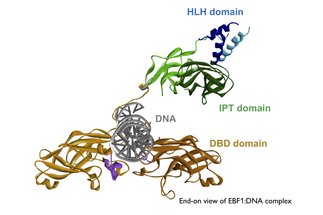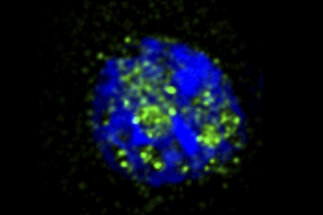Research
Lab Grosschedl
The developmental potential and trajectory of a cell are determined by external signals and intrinsic conditions, including the epigenetic state and the activity of transcription factors. Hematopoiesis is an excellent model system for studying cell fate decisions, differentiation, lineage-specific gene expression and plasticity of chromatin states.
In particular, B lymphopoiesis is a paradigm for the stepwise differentiation of multipotent progenitors into terminally differentiated effector cells. Differentiation of multipotent progenitors into effector lineages requires multi-lineage priming of enhancers implicated in setting a chromatin state permissive for gene activation, (ii) expression of lineage-specific transcription factors that establish de novo accessibility of cis-regulatory elements, (iii) combinatorial action of transcription factors that form complex regulatory networks and activate lineage-specific gene programs and (iv) repression of transcriptional programs associated with alternative cell fates to stabilizes lineage decisions and commit cells to a specific cell fate.
We address questions of how lineage-specific transcription factors establish accessibility in naïve chromatin of hematopoietic progenitors, how specific combinations of transcription factors activate a lineage-specific program of gene expression and how transcription factors and cis-acting sequences form regulatory networks that establish and maintain B cell identity. Other questions include the role of higher-order chromatin structure and the function of transcription factors in the regulation of stem cell pluripotency. Finally, we seek to understand which signals from stromal cells influence transcriptional determinants of B lymphopoiesis and which genes regulate functional differences between conventional and innate-like B cells.

